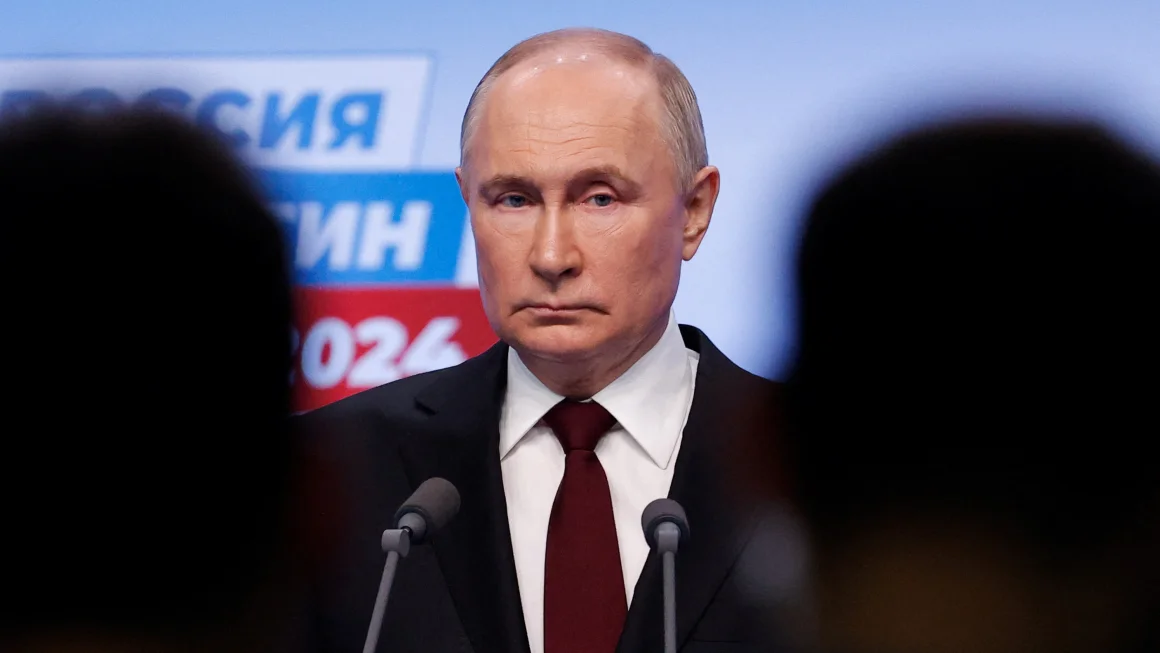President Vladimir Putin secured a landslide victory in Russia’s elections, claiming more than 87 percent of the votes – higher than his previous four poll wins, the Central Election Commission (CEC) data showed.
Ella Pamfilova, Head of CEC, hailed the outcome as a "record figure," underscoring the overwhelming support for Putin among Russian voters. In comparison, in the 2018 presidential elections, Putin secured victory with 76.69 percent of the votes.
The other three candidates on the presidential ballot were all members of the State Duma, including the New People Party’s Vladislav Davankov, the Liberal-Democrat Party of Russia’s Leonid Slutsky and the Communist Party’s Nikolai Kharitonov.
Following the announcement of his victory, President Putin took to national television, embarking on a victory lap that included a news conference. During the conference, Putin, for the first time, addressed the death of imprisoned opposition figure Alexei Navalny, describing it as an "unfortunate incident."
Navalny's death had sparked protests among his supporters, who accused Putin of orchestrating the killing. Despite these allegations, the Kremlin denies any involvement in Navalny's demise.
The recent electoral triumph for Putin comes amid the amendments to the Russian constitution in 2020, which extended the presidential term from four to six years. This alteration allowed Putin to run for office again, nullifying his previous mandates.
Putin would have served as Russian leader for the longest period, since Catherine the Great in the 18th Century, if he serves out his full term.
The three-day-long presidential elections were held for the first time in the annexed regions of Ukraine, including Donetsk, Luhansk, Zaporizhia, and Kherson.
More than five million votes were reported to have come from the Russia-annexed regions of Ukraine, where people were at times directed to cast their votes under the watch of armed Russian soldiers. In Donetsk region, President Putin was reported to have received 95 percent of the votes.
Despite claims of high voter turnout, some critics have pointed to the undemocratic nature of the elections. Reports emerged of Russians forming long lines at polling stations at a designated time to express their discontent. Additionally, Ukraine launched a symbolic act of protest by deploying exploding drones towards Moscow and other targets.
Western governments swiftly condemned the elections as undemocratic, with Adrienne Watson, Spokesperson for President Biden’s National Security Council, stating that "the elections were obviously not free nor fair".
In response to Western criticism, President Putin expressed readiness to deepen confrontation with the West, suggesting that a full-scale conflict with NATO was possible in today’s world.
The Kremlin views these elections as essential to Putin's portrayal of himself as a genuinely popular leader. Analysts anticipate Putin's administration to further bolster hard-line supporters within the government, leveraging the ongoing conflict in Ukraine to advance Russia's geopolitical interests.
Putin gave a preview of his goals for the upcoming term, stressing the need of completing duties in the framework of the “special military operation” ongoing in Ukraine. He celebrated the operation's results, saying they helped to unite society behind his leadership.







 Armenian sappers commenced on Monday mine-clearance operations in the territories adjacent to the Saint Mary Church in village of Voskepar (Armenia...
Armenian sappers commenced on Monday mine-clearance operations in the territories adjacent to the Saint Mary Church in village of Voskepar (Armenia...
 Iran and Pakistan have signed eight cooperation documents in various fields, and agreed to strengthen ties to fight terrorism in the region.
Iran and Pakistan have signed eight cooperation documents in various fields, and agreed to strengthen ties to fight terrorism in the region.
 President Aliyev emphasized the critical role of the North-South Transport Corridor in fostering transport cooperation between Azerbaijan and Russi...
President Aliyev emphasized the critical role of the North-South Transport Corridor in fostering transport cooperation between Azerbaijan and Russi...



